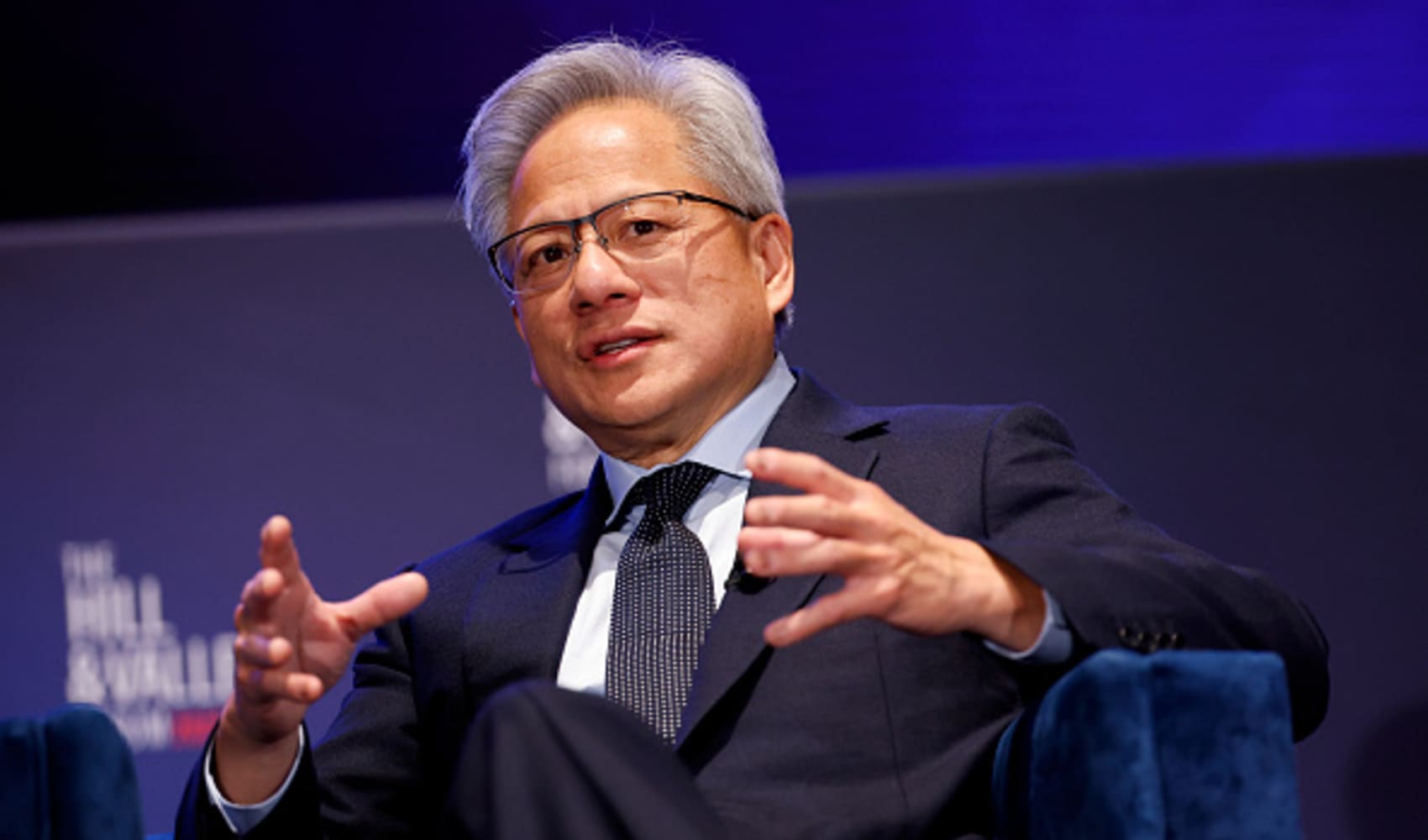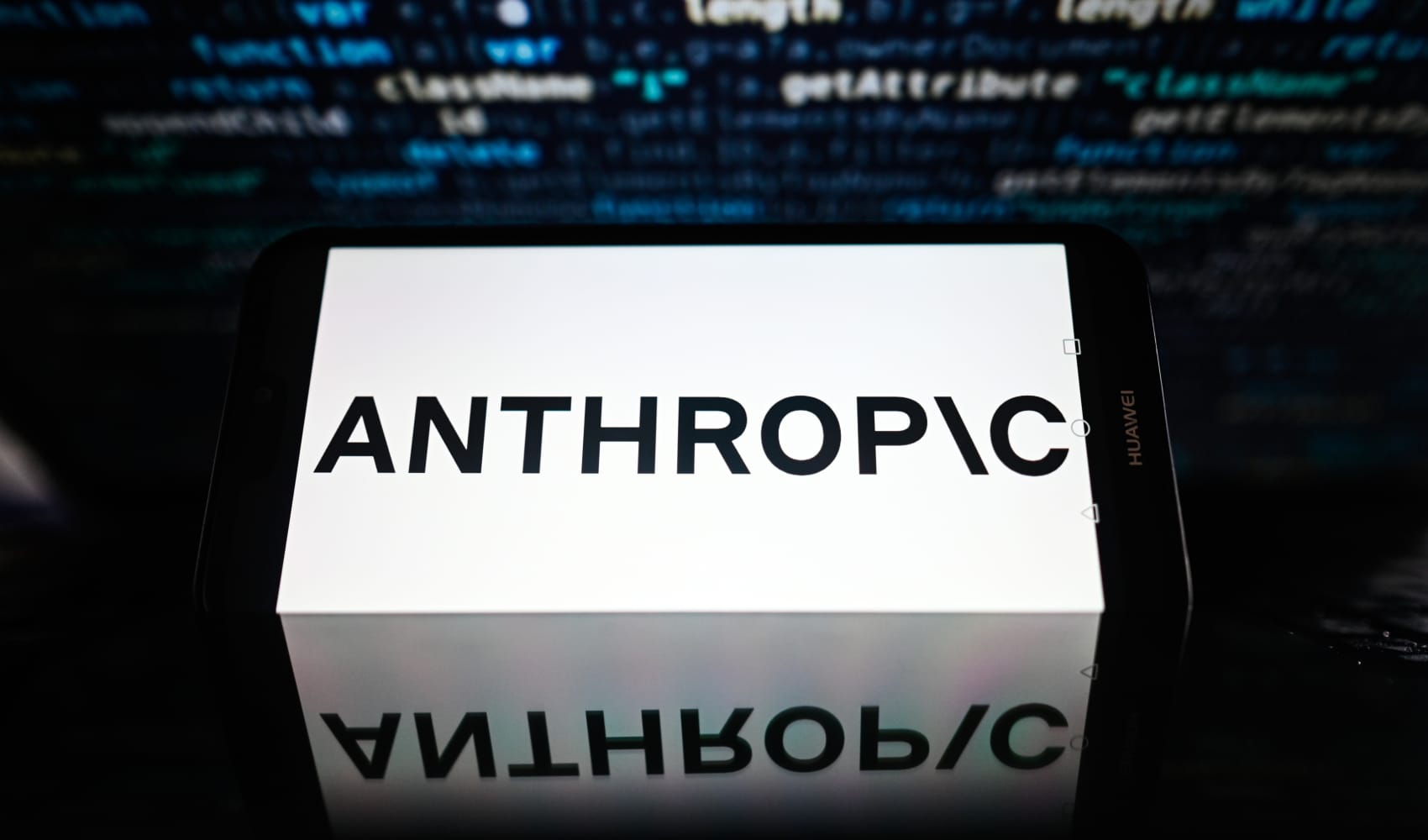Nvidia vs. Anthropic: AI Chip War Erupts!
Nvidia Accuses Anthropic of "Tall Tales" in AI Chip Export Debate
Introduction: A Rift in the AI Landscape
The world of artificial intelligence is rarely quiet, but lately, the volume has been turned up to eleven. We're witnessing a fascinating and, frankly, bizarre showdown between two AI giants: Nvidia and Anthropic. At the heart of the matter? U.S. chip export restrictions to China. While you might expect solidarity in the face of regulatory headwinds, these two are throwing digital punches, and the claims being made are, shall we say, colorful.
The "Prosthetic Baby Bump" Heard 'Round the World
Anthropic, an Amazon-backed AI company, dropped a bombshell that's hard to forget. They alleged that Chinese companies are employing increasingly outlandish smuggling tactics to evade U.S. chip export restrictions. According to Anthropic, these tactics include hiding advanced AI chips in "prosthetic baby bumps" and even packing them alongside live lobsters. Yes, you read that right. Live lobsters.
Was This Just a Marketing Stunt?
Honestly, the sheer audacity of these claims makes you wonder if it's all a cleverly orchestrated marketing campaign. After all, what better way to grab headlines than with tales of clandestine smuggling operations involving seafood and silicone?
Nvidia's Blistering Rebuttal: "Tall Tales!"
Enter Nvidia, the undisputed king of AI chips. They didn't hold back. An Nvidia spokesperson dismissed Anthropic's claims as "tall tales." Ouch! Nvidia accused Anthropic of fabricating or exaggerating these smuggling stories to support tighter restrictions. But are they just sticking their head in the sand?
A Rare Public Spat
It's unusual to see companies in the same industry publicly criticizing each other, especially on such a sensitive issue. This clash suggests deeper tensions and potentially diverging views on the best way forward for the AI industry.
The Stakes: U.S. Chip Export Restrictions Explained
So, why all the fuss about chips? The U.S. government has implemented restrictions on the export of advanced AI chips to China, citing national security concerns. The goal is to prevent China from using these chips for military applications or other activities that could threaten U.S. interests. The restrictions have significantly impacted the global AI supply chain.
What Kind of Chips Are We Talking About?
We're talking about the high-powered GPUs (Graphics Processing Units) designed for demanding AI workloads. Nvidia's A100 and H100 chips, for example, are highly sought after for training large language models and other AI applications. These are the "sensitive electronics" Nvidia refers to.
Nvidia's Stance: Innovation, Not Restriction
Nvidia's position is clear: instead of relying on restrictions, American companies should focus on innovation and outcompete their rivals. They believe that limiting competition stifles progress and ultimately harms the U.S. AI industry. It's a bold stance, one that many in Silicon Valley likely share.
The Free Market Argument
Nvidia's argument aligns with the principles of free-market capitalism. They believe that competition drives innovation, leading to better products and services for everyone. Restrictions, on the other hand, create artificial barriers and distort the market.
Anthropic's Perspective: National Security First?
While Anthropic hasn't explicitly stated that restrictions are the *only* solution, their alleged smuggling stories suggest a belief that strong measures are needed to prevent China from gaining access to advanced AI technology. Their actions are often interpreted as a focus on securing technological dominance for the U.S., potentially at the expense of open competition.
Is This a Self-Serving Argument?
It's fair to ask whether Anthropic's position is entirely altruistic. As a U.S.-based company, they may stand to benefit from restrictions that limit the ability of Chinese companies to compete in the AI market. Is this about national security, or about market share?
The Impact on the AI Industry: A Divided House
This public disagreement highlights a fundamental division within the AI industry. Some companies prioritize innovation and competition, while others emphasize national security and technological dominance. This division will likely shape the future of AI policy and regulation.
The Global AI Arms Race
The U.S. and China are engaged in what many consider to be an AI arms race. Both countries are investing heavily in AI research and development, and the stakes are incredibly high. The country that dominates AI will likely have a significant economic and strategic advantage.
The Future of AI Chip Exports: Uncertainty Ahead
The debate over AI chip exports is far from over. The U.S. government is likely to continue to refine its policies, and companies like Nvidia and Anthropic will continue to lobby for their respective positions. One thing is certain: the future of AI chip exports will have a profound impact on the global AI landscape.
Will the Restrictions Work?
The effectiveness of the export restrictions is a subject of ongoing debate. Some argue that they will slow down China's AI development, while others believe that China will eventually find ways to circumvent them. The "prosthetic baby bump" and "live lobster" stories, if true, suggest that Chinese companies are already actively seeking ways to bypass the restrictions.
The "Tall Tales" Metaphor: Who's Exaggerating?
Nvidia's use of the phrase "tall tales" is significant. It suggests that they believe Anthropic is not only exaggerating the smuggling threat but also actively trying to manipulate public opinion to support tighter restrictions. Is Nvidia right? Or is Anthropic just trying to raise a valid concern?
The Power of Narrative
In politics and business, the power of narrative cannot be underestimated. The stories we tell shape our perceptions and influence our decisions. Anthropic's smuggling stories, whether true or exaggerated, have undoubtedly captured the attention of policymakers and the public.
Ethical Considerations: A Moral Maze
The debate over AI chip exports raises complex ethical questions. Should companies prioritize national security over free-market principles? Is it ethical to restrict access to technology that could potentially benefit humanity? These are questions that society as a whole needs to grapple with.
The Double-Edged Sword of AI
AI has the potential to solve some of the world's most pressing problems, but it also poses significant risks. It's a double-edged sword that must be wielded with care and responsibility. Ethical considerations should be at the forefront of any discussion about AI policy.
Conclusion: The AI Chip Drama Continues
The clash between Nvidia and Anthropic over U.S. chip export restrictions is a fascinating and complex story. It highlights the tensions between innovation, national security, and free-market principles in the age of AI. While the "tall tales" of smuggling might seem outlandish, they underscore the high stakes involved in the global AI arms race. Ultimately, the decisions made about AI chip exports will shape the future of the AI industry and the balance of power in the world.
Frequently Asked Questions
- Why are AI chips so important? AI chips, particularly GPUs, are critical for training and running complex AI models. They provide the computational power needed for tasks like natural language processing, image recognition, and machine learning.
- What are the U.S. concerns about China's access to AI chips? The U.S. government fears that China could use advanced AI chips for military applications, surveillance, and other activities that could threaten U.S. national security interests.
- How effective are the U.S. chip export restrictions? The effectiveness is debated. They may slow down China's AI development in the short term, but China is actively working to develop its own chip technology and find alternative sources.
- What is Nvidia's position on the export restrictions? Nvidia believes that the restrictions stifle innovation and that American companies should focus on outcompeting their rivals through innovation.
- What is Anthropic's alleged stance on the export restrictions? Anthropic's actions suggest they favor stricter controls to prevent China from accessing advanced AI technology, potentially prioritizing national security over free-market principles.



